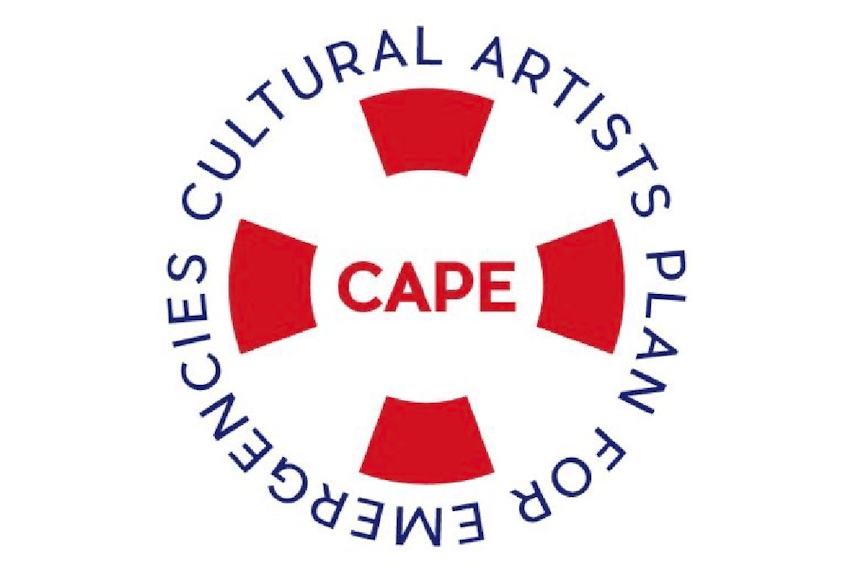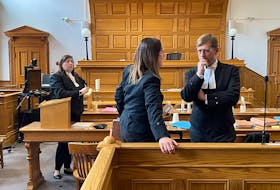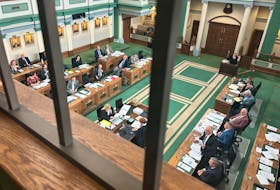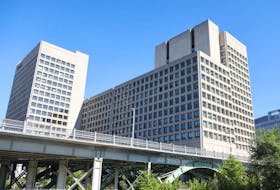ST. JOHN'S, N.L. — The Cultural Artists Plan for Emergencies (CAPE) fund is typically given out to artists, actors, musician and those who work with them, who find themselves in an unexpected personal crisis, like a car accident or a death in the family.
“It’s basically become a lifeline for artists in our province,” co-chair of the board of directors, Jenn Brown said.
But since the state of emergency was declared last Friday due to a record-breaking storm, the board of directors decided to use some of the money for any artist who may have lost revenue due to cancellations of work.
“A lot of artists and cultural workers are not on salary,” Brown said. “If they had work lined up that they missed because of this state of emergency — that’s it. There’s no catching up, there’s no backup.”

A total of $250 will be available to each applicant if they are accepted. If the applications reach the available $10,000 — 40 applications — the board of directors will reassess.
“Depending on need and the request for this, we’ll assess what else we can do to help people in our community,” Brown said.
President of the Alliance of Canadian Cinema, Television and Radio Artists (ACTRA) Newfoundland and Labrador, Amy House, remembers when the fund was started.
“Some artists had run into some health issues and we found ourselves out trying to find resources,” House said.
One of the catalysts for the fund was Michael Wade, an actor, writer and musician from Avondale, who died of cancer in 2004.
“La-z-boy actually gave us a chair for Mike to be comfortable in, so he could stay home,” House said.
It was decided they would create, what House calls a stopgap which could provide a financial donation to an artist in an emergency, buying them some time to figure out what to do next.
“It’s a very private thing and sometimes friends of artists will reach out and (ask for help),” House said. “Then we just start the process.”
The application is very clean and clear, House says. And out of respect for the dignity of the artist, all applications are anonymous to the board of directors. The review committee would need to know who the applicants are, and what their situation is, but that information is kept confidential.
Since beginning in 2005, the fund has provided over $82,000 to people from the arts community, all sourced from donations.
The Cultural Artists Plan for Emergency (CAPE) Fund has made a limited amount of funding available for artists and cultural workers affected by the storm/state of emergency. Please read the document for details. #nlarts #YYTSOE https://t.co/gc3J5xRDa8
— jenn (@jenntvbrown) January 22, 2020
One of the biggest supporters of the CAPE fund in St. John’s is the LSPU Hall, which offers the option to anyone renting the hall to add 50 cents to each ticket sold.
General manager of the LSPU Hall, Suzanne Mullett, says their support of the fund comes from the understanding that not many artists are in a financial position to be able to afford insurance.
“The CAPE fund is essential for helping artists… move through some really hard times and hopefully come out the other side,” Mullett said.
Without the fund, Mullett says she believes artists would still come together to help others in crisis. But having something more readily available makes it easier to help as many people as possible.
“Without it, I think a lot more people would fall through the cracks than is happening now,” she says.
Not everyone who rents the LSPU Hall can afford to add an extra cost to their ticket, Mullet said. However, in general, almost everyone does.
Mullett hopes to continue supporting the fund as long as possible.
“I don’t think a lot of people in the day-to-day world, outside of the arts community, realize how closely some artists are to living on the poverty line,” she said.
Twitter: @andrewLwaterman









